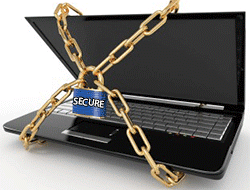Best Practices to Protect Your Privacy and Fight Malware
 Just about every day we see first-hand a stark reminder of how computer users around the world eventually face a type of aggressive computer threat that ends up requiring the use of an anti-spyware application. Through their best efforts, most computer users are unable to come to a resolution for protecting their computer from malware and eventually obtaining and using an anti-spyware product.
Just about every day we see first-hand a stark reminder of how computer users around the world eventually face a type of aggressive computer threat that ends up requiring the use of an anti-spyware application. Through their best efforts, most computer users are unable to come to a resolution for protecting their computer from malware and eventually obtaining and using an anti-spyware product.
Aside from having an anti-spyware tool, there are more ways to protect PCs from malware. Among those actions, we have listed the tips that most computer users can follow that may assist with the avoidance of malware threats in the future.
Probably among the best safety practices we can all do in regards to a personal computer is to keep software updated and apply the necessary patches to installed applications. Software updates and patches applied to all installed applications and the operating system are by far the most important steps to take for the protection against malware apart from using an antivirus application. Most vulnerabilities that allow malware are ones that target out-of-date software or operating systems. Rarely are newly updated applications or patches vulnerable during the time of their infancy.
Another way to protect your computer from malware is the practice of using strong passwords in conjunction with a password manager. The way the Internet is nowadays it poses a vast hole for hackers and cybercrooks to infiltrate online accounts on many levels if ever your password or passwords were compromised. Moreover, the use of two-factor authentication for your online accounts will ensure use of your password has another layer of protection that only you have access for.
Ways to Protect Your Computer from Malware Attacks
- Eliminate bundled applications and bloatware
Most new PCs that come with Windows pre-installed will have other applications loaded that are mostly useless and pose a security risk due to them being points of entry for remote hacker attacks. Many of these programs are from 3rd parties and are not updated as often as they should. To help ward off vulnerabilities, uninstalling and removing such software is essential for the security of the affected computer.
- Enable fill-disk encryption
Setting up encryption on your computer's hard drive is mostly an easy task that yields a much more secure infrastructure once it is complete. Your data is then saved in an encrypted form limiting outsiders from deciphering it if they were ever to download or access the data from your computer's hard drive. Apart from the built-in encryption functions through Windows, computer users may use programs like VeraCrypt, Microsoft's BitLocker, or FileVault if you use an Apple Mac OS X computer.
- Use HTTPS Everywhere plugin for Chrome and web browsers
Use of HTTPS connections is an added layer of security ensuring that the data transferred over the Internet is encrypted and cannot be viewed if it is ever intercepted. There are many plugins available to add to popular web browser applications, but HTTPS Everywhere is among the best and most trusted.
- Uninstall and stop use of Java while setting auto-updates for Adobe plugins
Java has long been known for having several exploitable bugs that may have security holes that hackers take advantage to attack a vulnerable computer. By uninstalling and stopping use of Java all together, you will eliminate those inherent risks. Additionally, setting your Adobe Flash and Reader plugins to update automatically you will ensure that any current vulnerabilities are patched as Adobe products are a popular target for attacks that could allow injection of malware onto your system.
- Use a trusted ad-blocker application or plugin
The Internet is full of advertisements where some have a tradition of causing redirects or loading tracking cookies. Eliminating pop-up ads and advertisements all together will require the use of a plugin like uBlock.
- Use a VPN (Virtual Private Network) over a public Wi-Fi whenever possible
Public Wi-Fi networks are notorious for hackers infiltrating computers connected to the network. Most times hackers can infiltrate a connected computer without any indication to the computer user allowing a cybercrook to make off with valuable and personal information. Setting up a virtual private network where your computer will funnel traffic through an encrypted pipeline will make it nearly impossible for the data to be intercepted and stolen. There are VPN services that perform similar actions such as OpenDNS.
I would like to thank Spy Hunter 4 for practically saving my life, well my computer and he enormous amount of information I have stored on it. On finding it they quickly removed everything that was effecting my computer, some things that hadn't got a start yet and weren't known about. So a big thank you goes out to all, especially for their quick response to my needs. Thank you and I would recommend this software to anyone in need of fixing up their computer, if they need it or don't think they do.